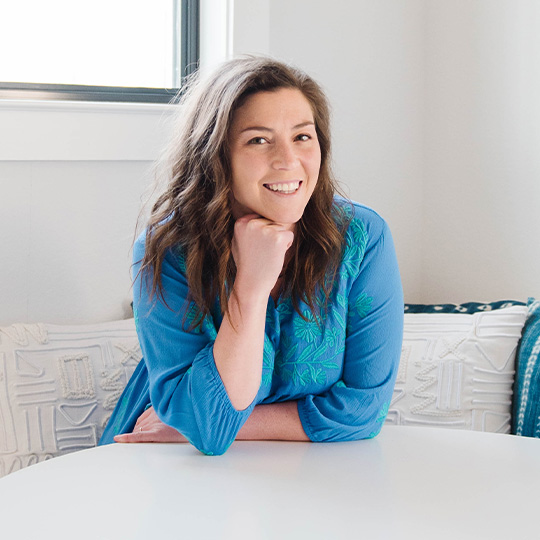Some set point weight theory reflections.
I’m a little late getting this post up! My plan was to get up early to finish it, but the kids had other ideas on how this morning would go haha. First things first, I was on the Look Ma’, No Hands podcast. It’s the first podcast I’ve done in about 2 years! If you listen, I hope you enjoy it.
Today I wanted to share some thoughts I’ve had on set point weight over the last few years. If you’re unfamiliar, set point weight theory proposes that our body has a size range (not one specific number) it wants to be at and it will fight to keep us there.
Some use body size as a way to achieve inner stability.
For an individual struggling with an eating disorder, the mechanism for how you achieve inner stability and peace is through food, exercise and body size manipulation. Many who end up developing EDs have a good deal of free floating anxiety that feels like it can be contained if it’s channeled towards food, exercise and body size preoccupation. The issue here is the harm that happens to one’s self when inner stability is achieved via something rooted in deprivation, self-loathing, and pain. Attempting to find your set point without addressing the root reasons why striving for thinness is, at the present time, necessary for you to be okay, can be an extremely terrifying thing.
Having our body be a certain size or being in pursuit of a certain size offers up some level of order and approval to one’s life, but it’s a false refuge. Finding your set point is hard because it’s frustrating that a craving for certainty around what size your body will end up can’t be satisfied. Ultimately, I believe there is a size our bodies want to be and it will fight to keep us their, but throughout life bodies change, if not in weight then for sure in body composition when aging.
Which brings me to a questions I get asked a lot, does one’s set point increase after pregnancy/menopause?
In my experience, after pregnancy my set point increased. I haven’t weighed myself in a bit and don’t need to to be well, but the clothes that fit a year after I had Jo have been donated or poshmark-ed because I outgrew them. A dive into the research didn’t really seem to reveal a yes or a no on this. The research here is tricky because most studies aren’t limited to just women who are intuitive eaters, but all women of which I imagine many are weight cycling. Weight cycling alone is something that likely increases one’s set point (Robyn’s course discusses this). As for menopause, the menopausal transition leads to “changes in body fat distribution and body composition” possibly due to the change in the hormonal milieu that occurs at this time period.
Another thing I often hear, “I’m not okay with my set point.”
On a recent Cup of Jo post, Anjali Pinto discussed beauty and body acceptance since losing her husband and she put it so beautifully with, “it ebbs and flows, but having the reality check that health is not a guarantee and to be grateful for what your body is capable of — that has allowed me to view my own fat as a gift. I get to enjoy food and enjoy life. I’ve been chubby since I hit puberty and if I don’t accept it I’m going to die hating my body, and I don’t want to be in that position.” Finding ways to be respectful of and grateful for your body is important.
Finding art or bodies with fat on them that you find beautiful and can help you work towards finding beauty in your own body size is important (the below print from etsy is one I’ve been eyeing for the girl’s bathroom). I recommend this because it’s hard to take care of something you don’t appreciate. This isn’t easy, but if the body size you end up at when you are pursuing health promoting behaviors doesn’t match your view of health, a deeper dive into why when you are doing healthy things the body size you end up at is one you don’t approve of can be useful in finding peace with what your body is made to be.

What’s the point of finding your set point?
I enjoyed reading your comments on your experience with set point weight theory in this post. For me, since finding my set point weight, my body image concerns are lowered significantly. I don’t feel distressed about being in my body most days, because I like and am proud of the way I care for myself and the body size I end up when I do that is what it is. The reality of it is sometimes it’s hard to be in a body that has fat on it. Sometimes I don’t like everything about it, but I would still choose the weight gain that has come with intuitive eating every single day. To be fully free around food and exercise. To get to step away from how complicated, preoccupying, and effortful food and exercise was before. To have my view of health expanded from simply the food I eat or how I move to things that are so much more significant and in line with my values. To have more grace and acceptance of myself as I was created to be. All worth it.





This post really resonated with me. I had hypothalamic amenorrhea for 10 years from over exercising and under eating. My older daughter had to be conceived with fertility treatments because I didn’t understand that all I had to do was gain weight and stop exercising to have a baby. I finally got my act together when she was 3 and regained my period but it took an additional 2 years to get pregnant on my own. I just had my second baby 3 months ago and it is so hard to accept that my body is different from how I want it to be yet it can produce and house two beautiful babies. Body acceptance is something I work on and struggle with daily.
Healing from HA is hard work, way to go! It for sure takes time to adjust to a body that is different. Body Respect by Linda Bacon is a really great book on this if you haven’t read it/are interested!
That first point about inner stability really resonated with me. For a long time in my recovery (or rather, my “pseudo recovery” period) I was really scared of gaining weight because I was afraid it would challenge my identity as a thin person. Trying to control my weight was a way of trying to control all of the out-of-control things in life. If my weight stayed stable and under my control, then I felt okay. Except…I didn’t feel okay. And once I realized that my weight wasn’t making me feel as okay as I thought it was, it became a lot easier to let go of that shape/size I was idolizing so much.
Really well put, Alexandra! Thanks for sharing this!
I can relate to the post and so many comments. For 15 years, I was in a pseudorecovery from eating disorders. None of my treatment professionals ever told me that I needed to weight restore, so I stayed at too low of a weight for my body, never getting my period, being cold all of time, etc. I was never happy in my skinny body, even though I was praised and given so many positive comments, even from doctors. The thing is, that since I was skinny, I could easily pretend to be happy.
Now I am finally weight restored/restoring (because who the f*** knows what my set point range is) and I am feeling so much health. I have gotten my period 3 times in a row (a miracle, since I hadn’t menstruated on my own in 3 years), am no longer cold all of the time, and my mind is just clearer. But it is so hard to accept that I cannot be skinny AND function. I am working on why I believe that skinny is better and celebrating the ways that my body works now.
At 35, I really want to have kids, so I am being patient with my body as it learns to function again.
This work is so difficult. But this blog is helping me so much. Kylie, your words and perspective are so refreshing. You inspire me to keep doing the hard work. Thank you!
Way to go, Astrid! The research says that only getting to 90% weight restored vs. 100% weight restored is likely to lead to relapse. Full and sustained weight restoration is so important to lasting recovery. Really glad you have gained/are gaining weight!
It almost makes me angry that no one else caught the fact that I was still restricting and controlling my weight (I didn’t even understand what I was doing). Now that I am eating and restoring, the urge to use ed behaviors is gone. Oh, and I meant 15 years without having a natural period.
Absolutely beautiful post. So well said. I love the last sentence “To have more grace and acceptance of myself as I was created to be. All worth it.” I’ve been a reader since 2014 (I believe or maybe before?) So grateful for this platform and how you have impacted my relationship with food and body so I can now help others do the same. Thank you does not seem enough.
Thanks for being here, Whitney!<3
I love that you pointed out that even though you don’t necessarily enjoy having fat on your body, it’s worth it. This is so true. While I don’t love my recovered body, I would not trade the life I now enjoy for a smaller body. When I had that body, I was miserable.
Agreed. Agreed. Agreed. <3
I have a 1 year old. I have been lucky enough to nurse her throughout this first year. Now that she’s older and eating more solids, I think my hormones are shifting and my cycle may be returning. With that has come weight gain. And oh boy am I struggling with it. You see, around 5-6 months ago, I was at a weight I hadn’t seen in ten plus years. My clothes were feeling loose and I was feeling great. I thought wow this is what my body set point must be! I’m not dieting or exercising like crazy like before and magically I am thin! People were complimenting me left and right about how I looked great and wow I lost the baby weight so easily, etc. so now I am in a very dark place. Clothes are tighter again. The weight is back up to my pre-pregnancy number so all the deficit is gone. And no more compliments. How do I accept this body again? How do I not feel betrayed by it’s perceived trickery?
Hey Lauren, motherhood is filled with shifts!! Taking care of ourselves doesn’t guarantee a certain body size and, just as you said, this is hard to accept. I wonder if parts of this post would resonate with you…it’s different than what you described here, but may still be useful for you: https://immaeatthat.com/2017/07/25/a-goodbye-to-my-pre-pregnancy-body/
Thanks for the post! Do you have any insight or resources for possibly having a set weight that’s too low for your body? I lost (too much) weight a few years ago due to a GI issue, and it’s been a real struggle to gain it back! I’ve been hesitant to talk to anyone besides my doctors about it because most women don’t want to hear the “oh, I can’t gain weight” kind of complaint, but it has me wondering if my body just wants to stay at this weight?
Hmm this is complicated! Can’t think of any resources off the top of my head. I’d recommend working with a non-diet dietitian to have them work through this with you!
Thank you! I will look into that. Your blog was the first time I’ve ever heard of set point weight, and it’s been so helpful.
Kylie — I appreciate you and your blog so much! I’m a nutrition student and I am currently completing the last hours of my dietetic internship at an eating disorders treatment center. Set point weight theory has come up numerous times during this rotation and it’s something that I love to talk about! Lately, I’ve been reminding patients that our job is to take care of our bodies, nourish them adequately, give them rest, and appreciate them for all they do… NOT to micromanage their shape and size. I’m a firm believer in the freedom that comes with allowing our bodies to settle into their set point range. It can be a long road to get there, but it is MORE than worth it!
Yay for your DI almost being complete!!
“All worth it.” Yes!
<3
I love reading your thoughts on this Kylie. I’ve been recovered about 9 years and in that time my weight has fluctuated probably 15 lbs within my set point. Around the time I turned 30 I gained a bit and I’m now at the higher end of my set point. This is still frustrating to me, since I found a weight I felt comfortable at in my mid twenties and it also allowed me to eat intuitively and ditch the over exercising. Feeling my clothes get tighter still kind of feels like a betrayal from my body. I know that I need to accept some more fat on my body because it’s absolutely worth it, but some days are harder than others.
Ever since you said “i’ve outgrown certain clothes,” things just started to click for me. I used to say to myself, “i’m too big for my old clothes,” when really they were not the right size for me in that chapter of my life. I have such a better relationship now with the size and I am and buying the size that fits me properly and comfortably. And also looking at donating or giving clothes to friends as a positive experience, not a negative one where several years ago I’d see that as failure. Thank you for everything you do and write <3
So happy to hear this Lindsay! Thanks for commenting. Similar to what you’ve said, I’ve found giving clothes to close friends/family as a positive thing as well. In particular, one family member loves clothes, but is currently on a budget and I like getting to pass on some things that don’t fit me anymore to her. Old to me, but new to her!
I’m 51 and tried to dictate the weight my body should be from age 13 (concerned mother) until I was around 48. I finally stopped and accepted it wasn’t going to work. It took my body a significant weight gain and another 18 months before I reached set point. It still baffles me every time I weigh myself that I only go up and down by a pound or two despite genuinely eating whatever I want. I honestly thought I’d never stop gaining weight, but actually I was heavier during my yo-yo dieting days. I’m convinced had I never dieted that my set point would be lower. I still struggle to love the fat, but aim for gratitude that I have a healthy body. It’s also fascinating how the obsession with food, especially sugary stuff just disappears when your body starts to trust that you’ll keep feeding it!
I love hearing these positive (but realistic, it’s not all rainbows and butterflies) takes on stepping away from dieting! Thanks for sharing, Jilly!!
Hi Kylie, thank you for this! Super informative as always :) I’m wondering if you have any thoughts around the difference between weight cycling vs. fluctuating within your set point range (based on changes in exercise, sleep, stress, and other lifestyle factors)?
My nutrition has remained largely the same since I recovered from an ED a few years ago, but I’d say my weight can fluctuate by anywhere from 5-10 or so pounds on what’s going on in life that year, so I keep a couple sizes on hand in order to have options based on how my body’s meandering. I don’t weight myself either so that’s a guesstimate ;)
I listened to the podcast and I have a question about something you said. You mentioned that you do not let your daughter have any snacks after dinner and sometimes if she ask for a snack during other parts of the day you try to redirect because it’s not snack time. I know something that you preach is not following food rules (including what society deems as appropriate times to eat and only eating during those times). I am just wondering what your reasoning is for not allowing snacks at certain times. I am not saying this is wrong, I am genuinely curious about your rationale because I know you must have a reason and I just want to better understand!
I can’t speak for Kylie, but I do believe there is research to support that for children, a set food schedule is recommended. Kids Eat in Color is a nutritionist specializing in children and she recommends the parents decide when and what food is served. The child decides how much to eat at those times.
Hi Kylie! Reading this a bit late but am grateful for the topic and comments. I am 42 and had reached what I thought was my set point range after recovery 5 or so years ago. This past year I have begun to gain- I don’t weigh myself but noticed through clothing changes- and around my belly (not my usual spot). I read Body Myth by Margo Maine, PhD and found it very helpful as an older woman recovering and facing new body changes. I would love to see posts for the 40+ person or those experiences different phases of womanhood. I noticed above in a reply that you said “motherhood is full of shifts” and I would add that womanhood is full of shifts. Thanks for all you do!
I’ve gained some weight the last year, I miss hugs so I’ve been eating more chocolate and stuff. I understand rationally that it’s no big deal, but it’s surprisingly hard, considering I had the same weight for several years. I’m so back and forth about how to approach eating.
On one side, I would love to follow intuitive eating, but I tried it for a week, and though I see its perks, I have a strong tendency to start thinking to much about food regardless of how positive the approach is. I struggled with Anorexia as a teenager, I don’t have an eating disorder anymore (meaning I put my health before my weight, so I don’t skip meals or anything like that). Any suggestions to how I can start gently with intuitive eating?
Pingback: Yoga Video: Rigid to Fluid – Yeah…Immaeatthat